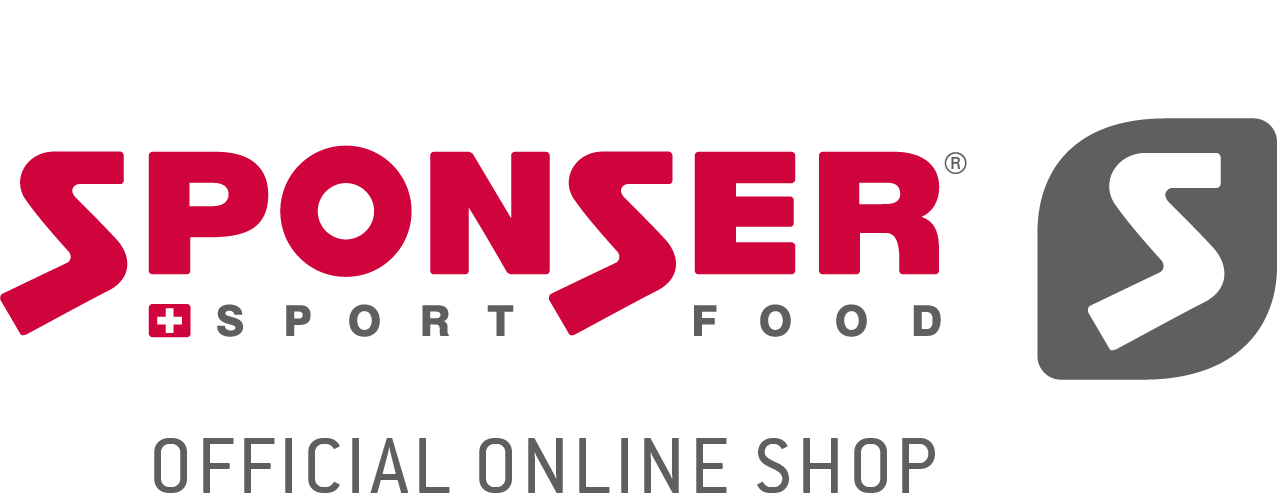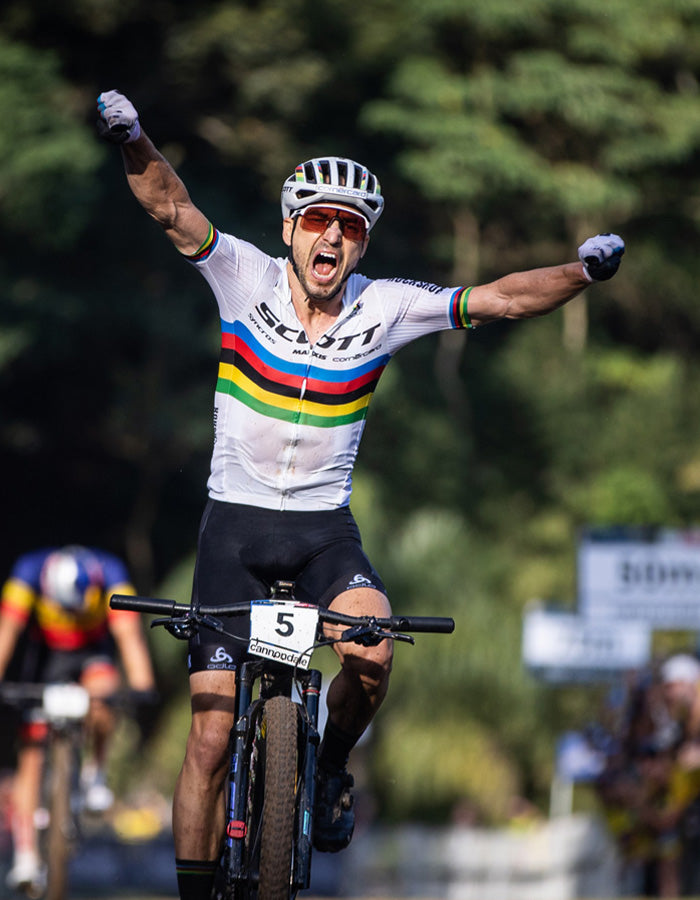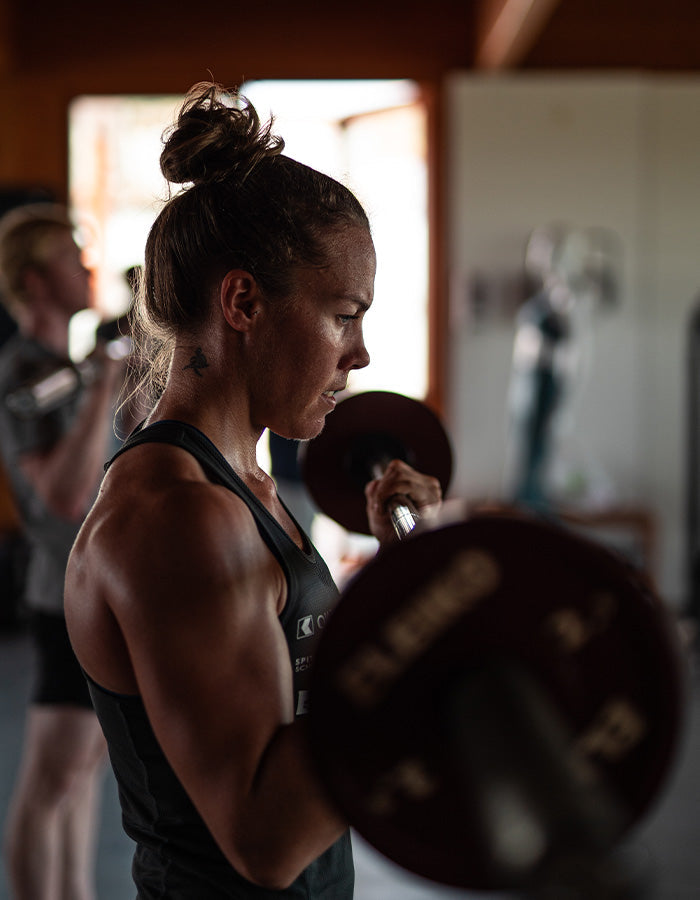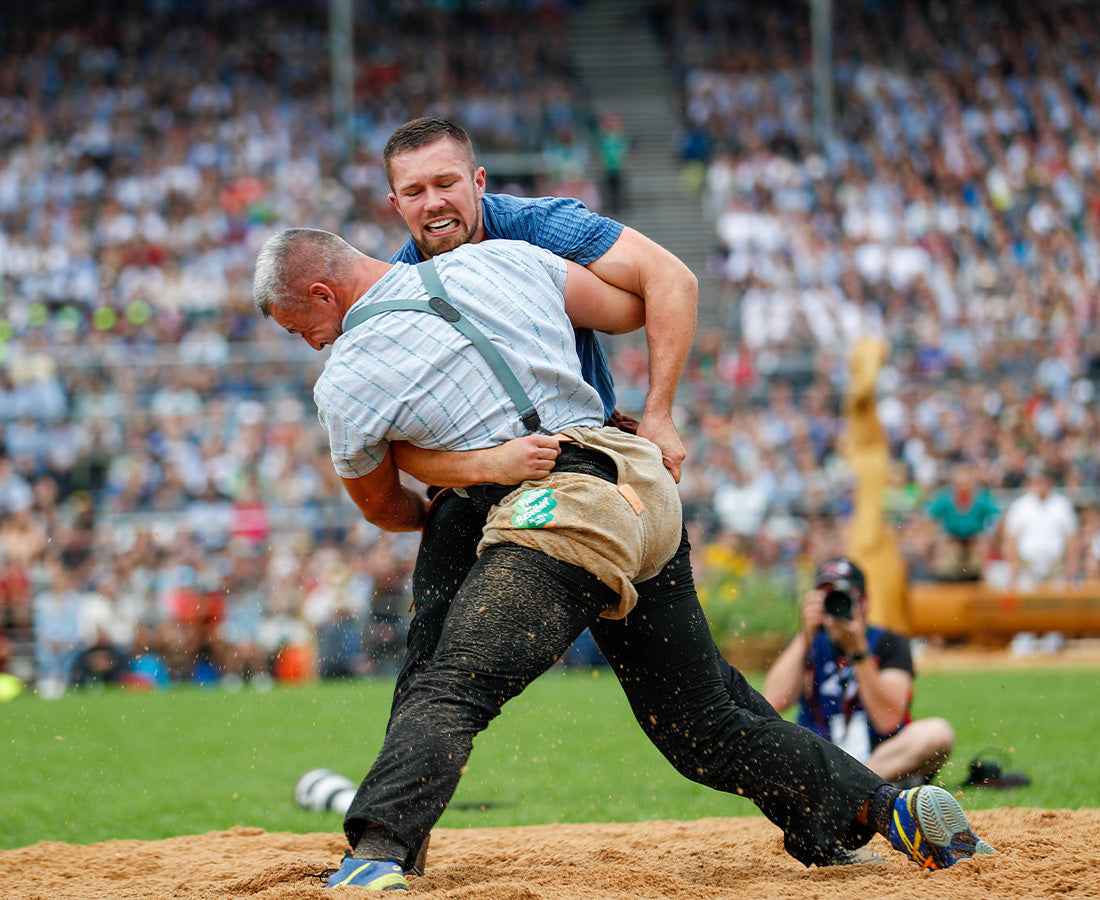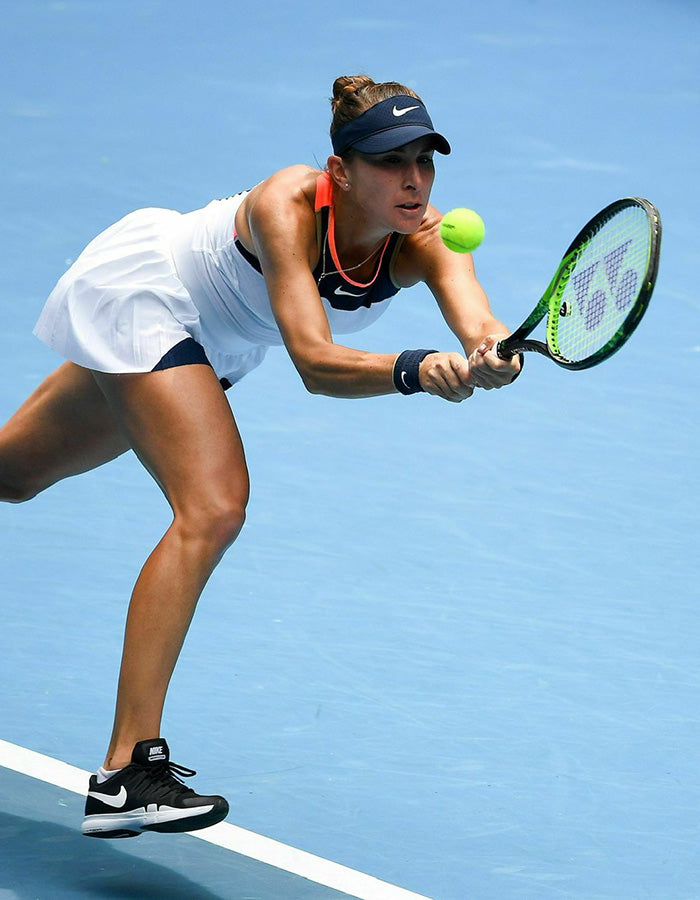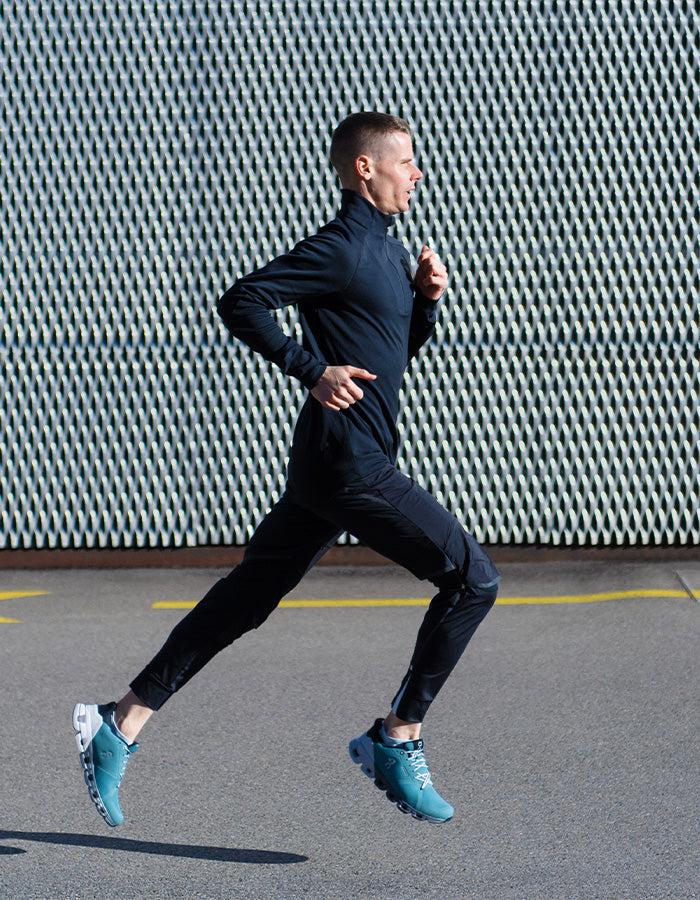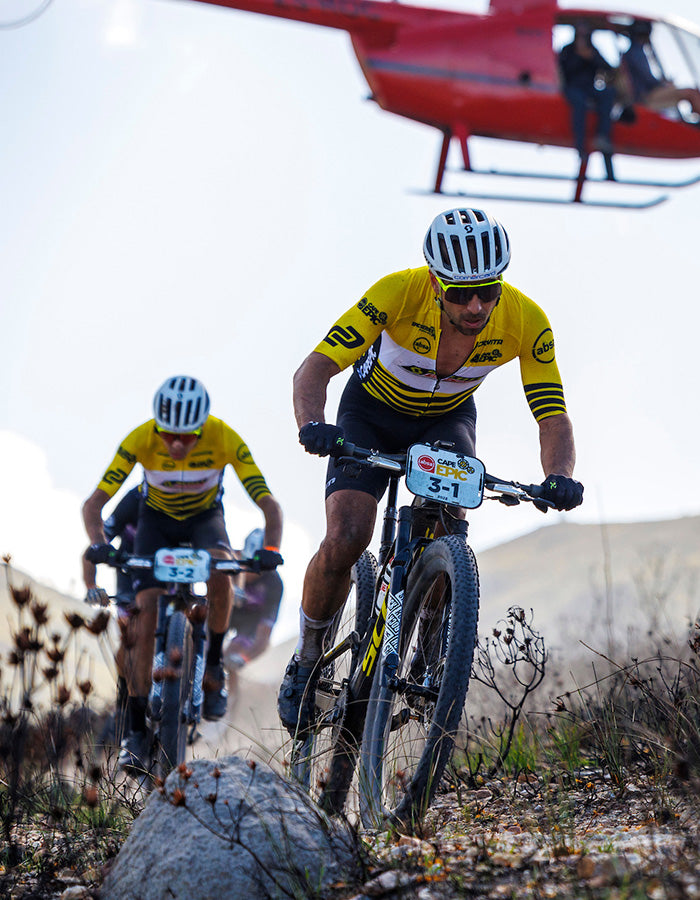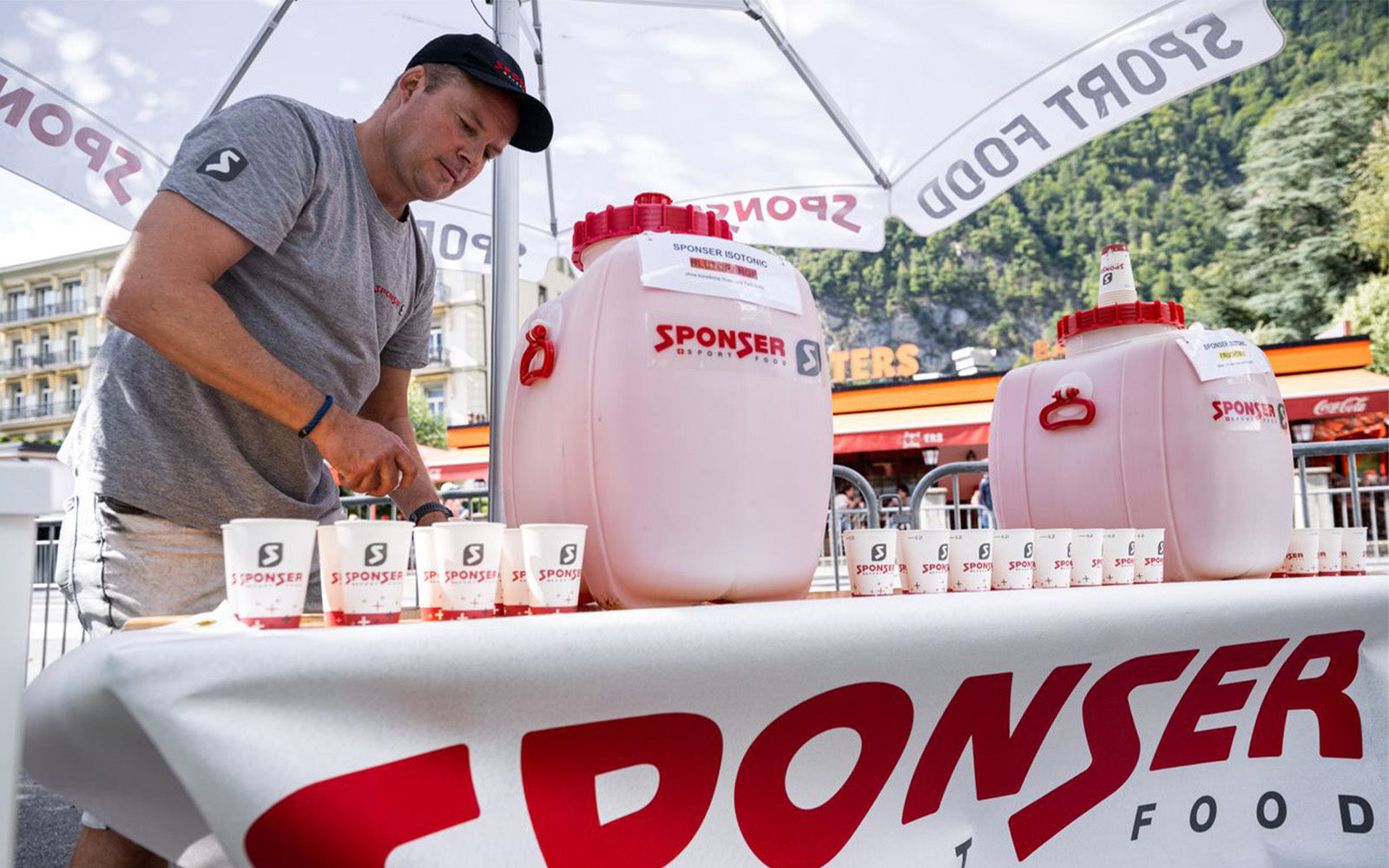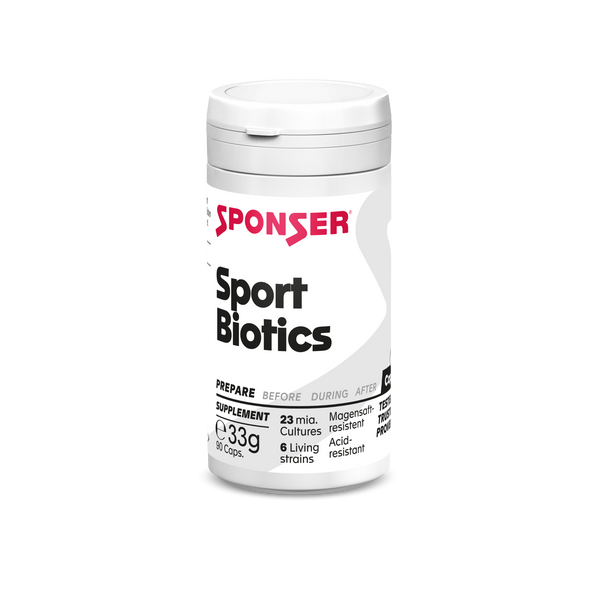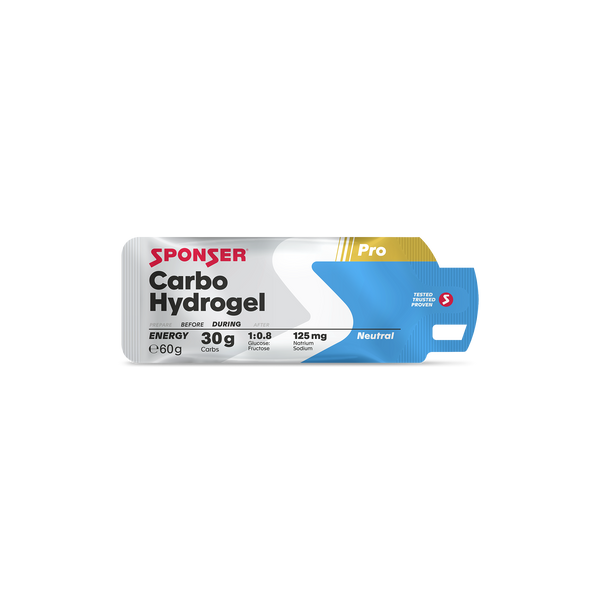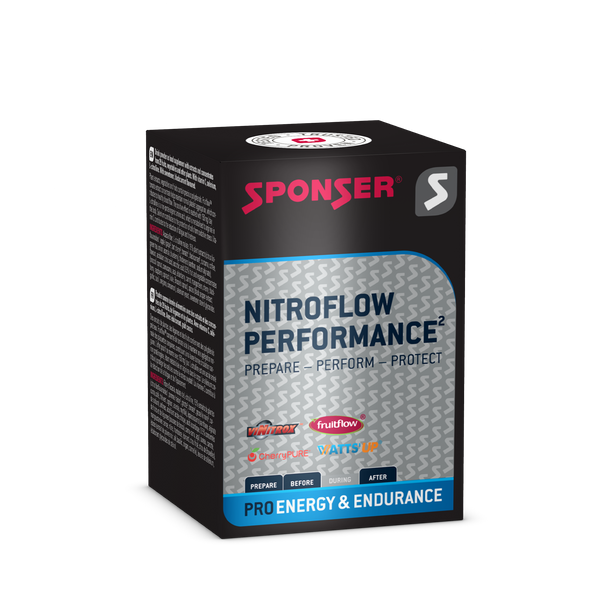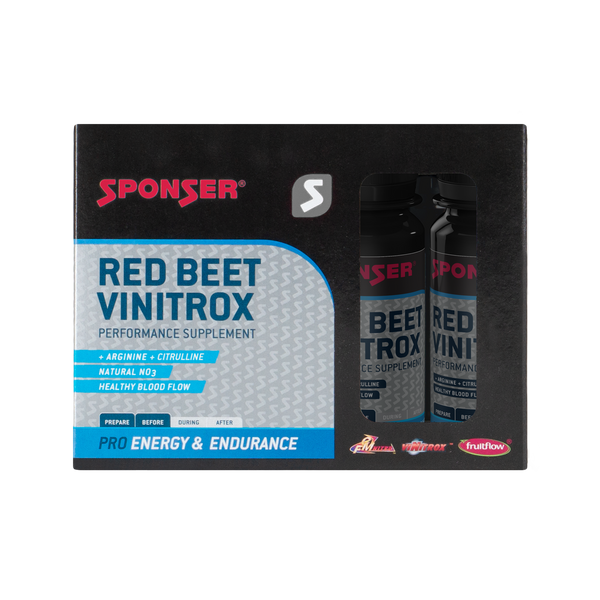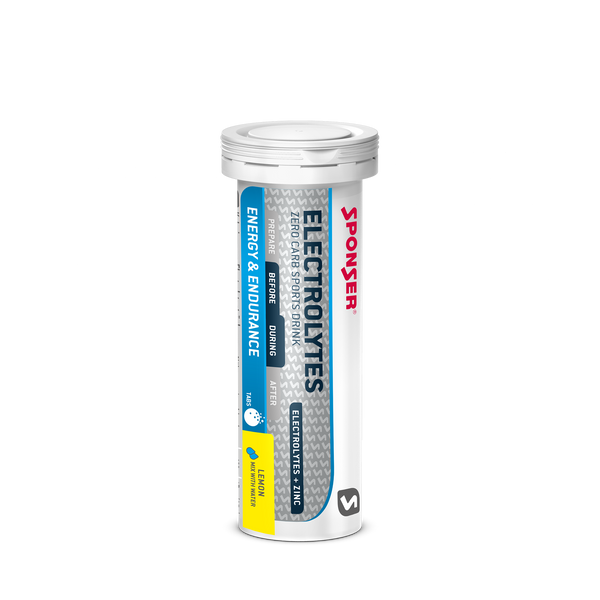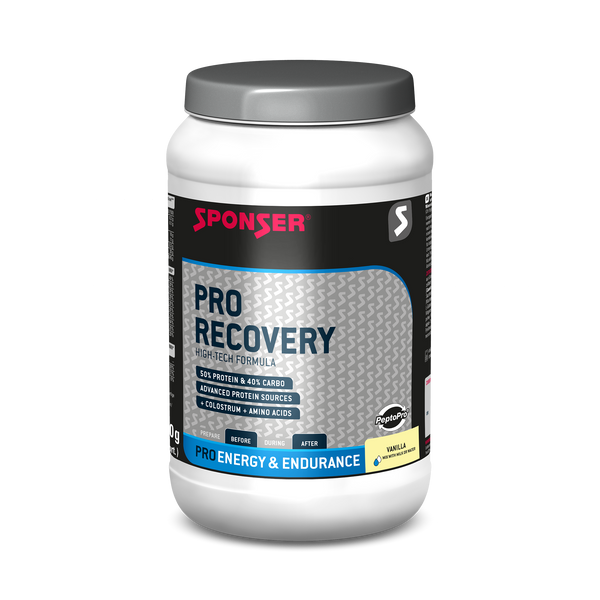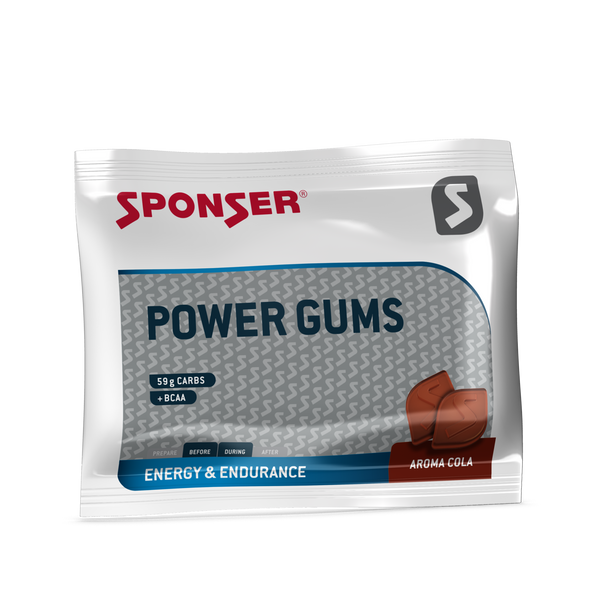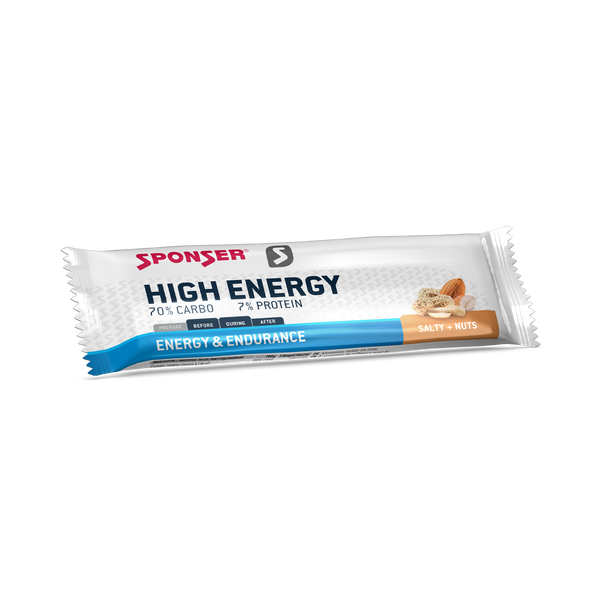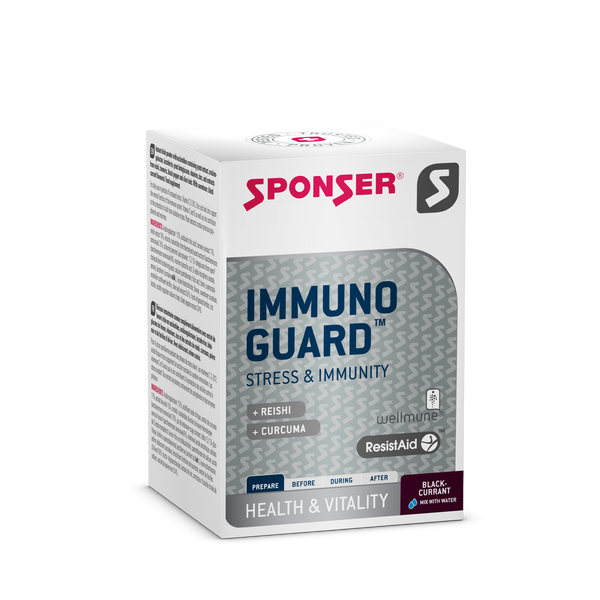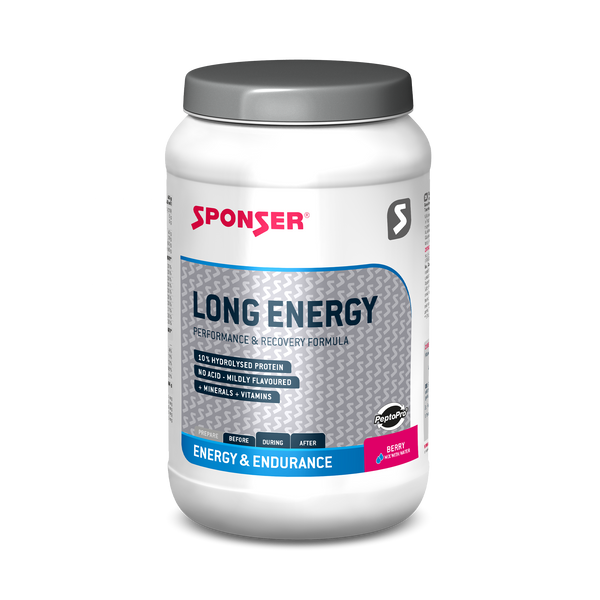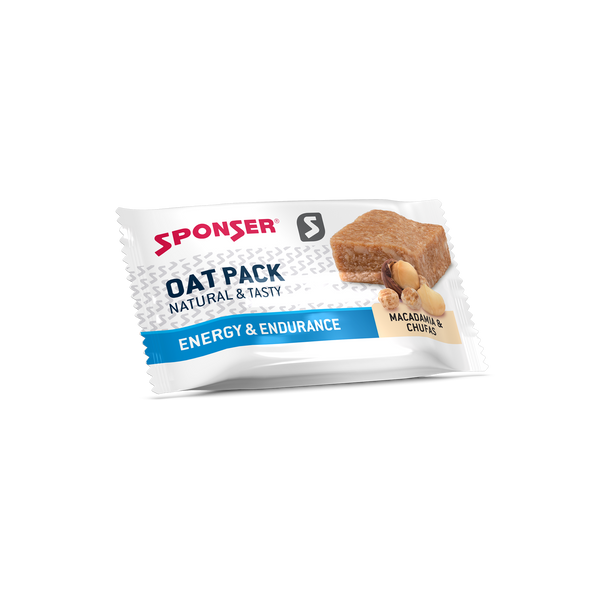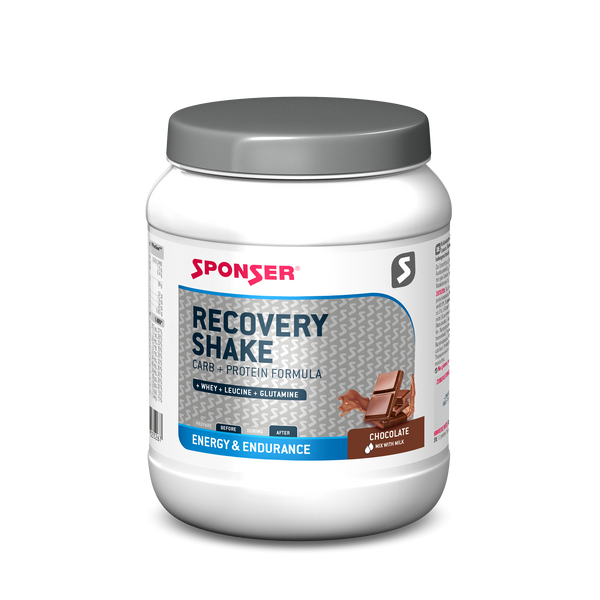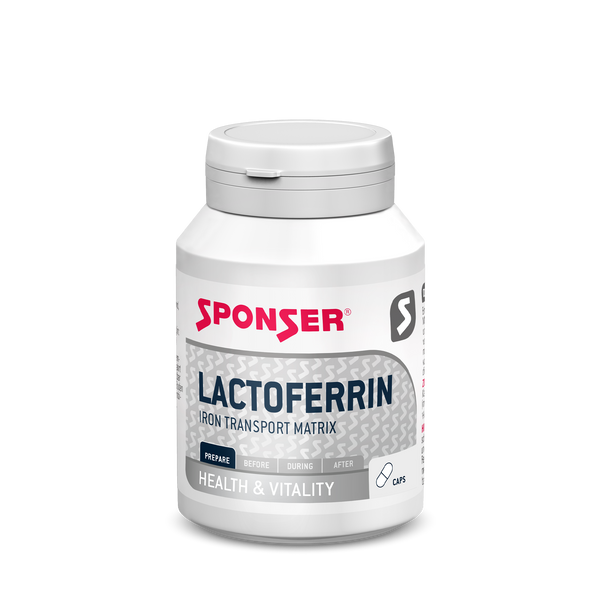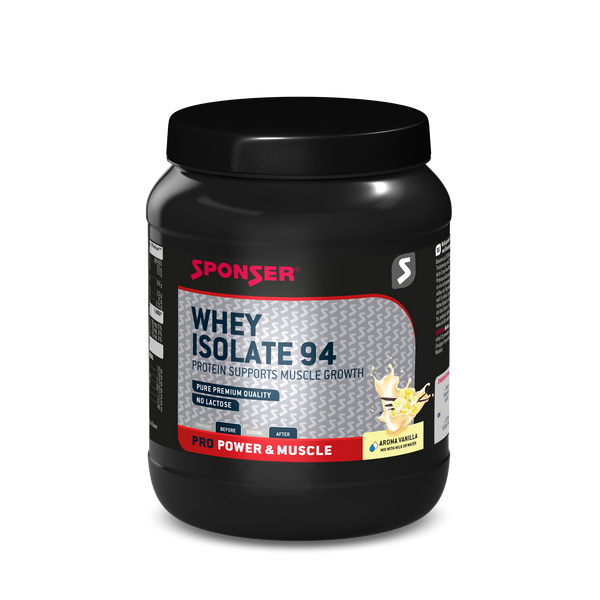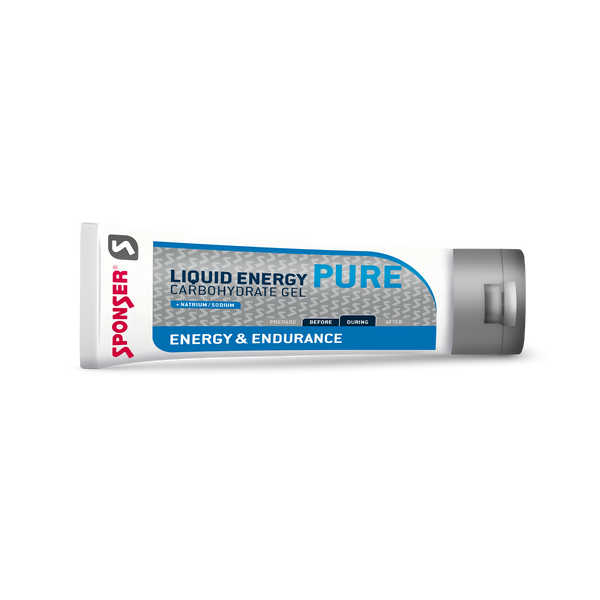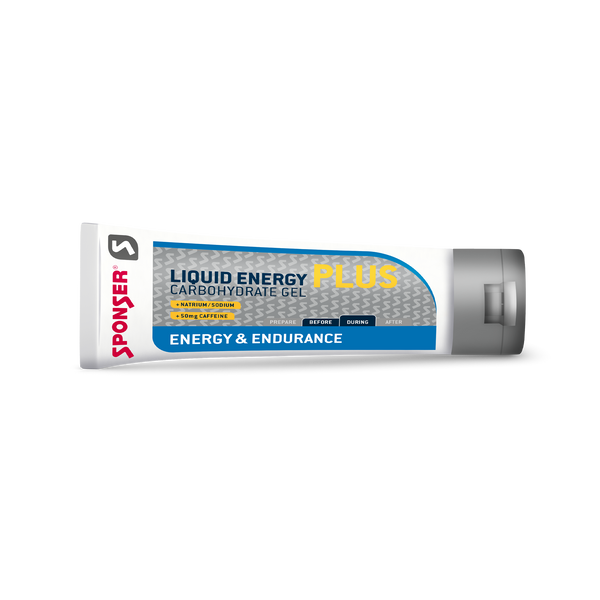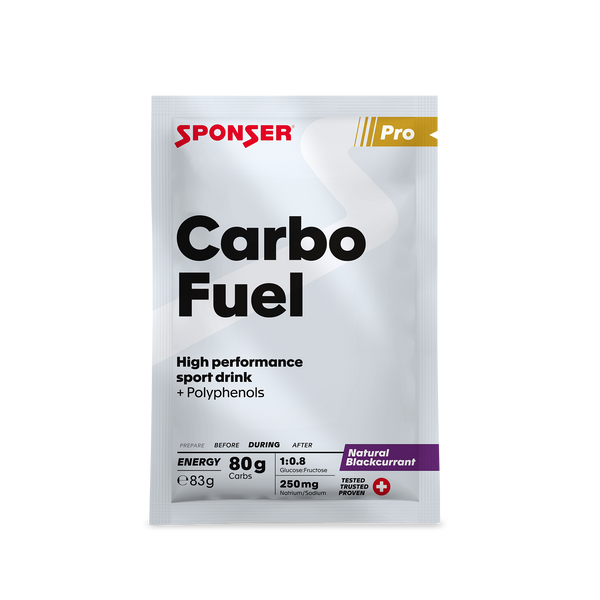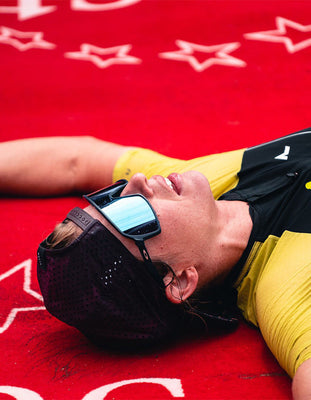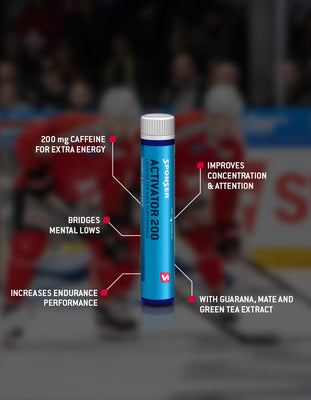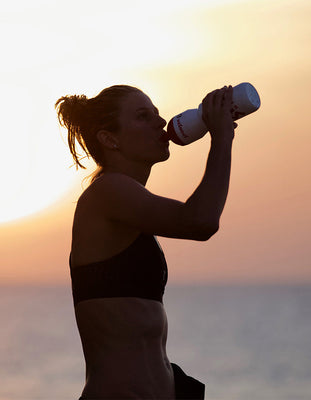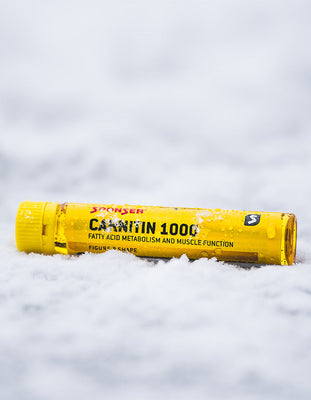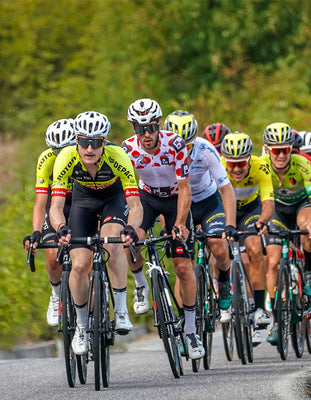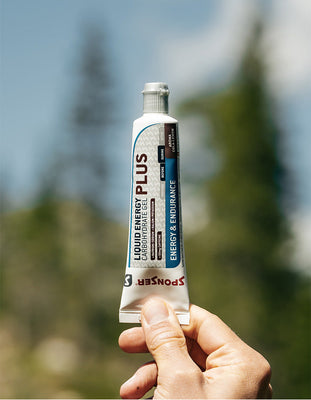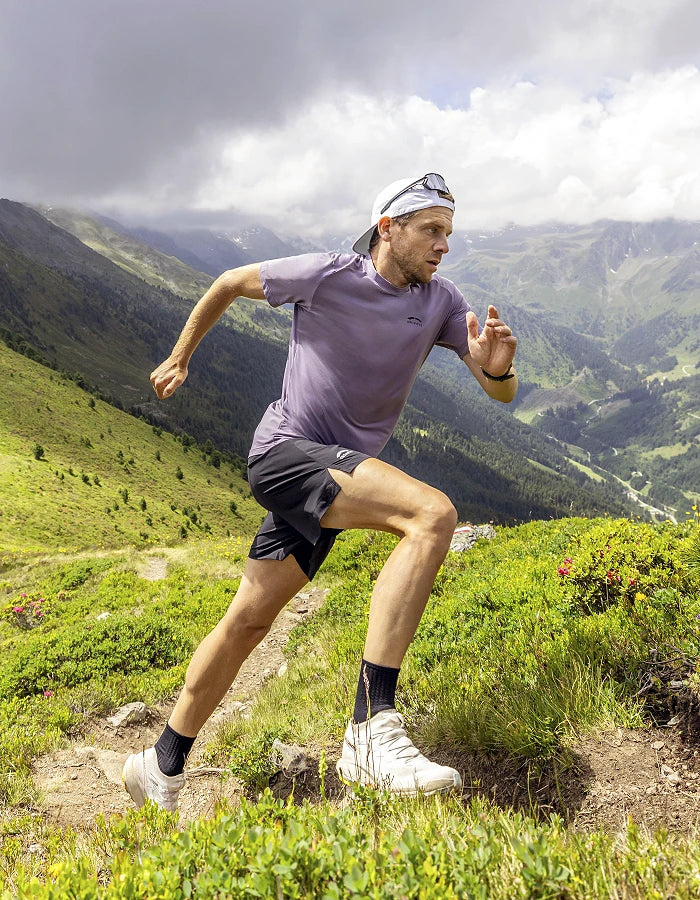
Photo credit: Skinfit International GmbH
Training at altitude: success factors for performance and recovery
To ensure that your stay at altitude or in an altitude training camp has the desired training effect, the Swiss Sports Nutrition Society recommends that you thoroughly consider your nutrition in advance. Here is the most important advice from this recognised professional association, supplemented with product recommendations from SPONSER:
Altitude activates the formation of red blood cells
At high altitudes, the air pressure decreases, which means that less oxygen is inhaled per breath. This oxygen debt stimulates the formation of red blood cells, which can improve oxygen supply to the muscles and increase performance in the long term. To ensure that this adaptation process runs smoothly, the body must be supplied with sufficient energy and nutrients.
Recognise and prevent energy deficits
At altitudes above 2,000 metres above sea level, the resting energy expenditure increases by around 300 kcal per day. This is due to an increased metabolism and the increased production of red blood cells. At the same time, high altitude can reduce appetite, which increases the risk of an energy deficit. To counteract this, a regular energy intake of at least six meals or snacks per day is recommended. Energy-dense foods such as HIGH ENERGY BAR, OAT PACK, ENERGY BALLS, sports drinks such as COMPETITION, CARBO FUEL or LONG ENERGY, nuts or nut pastes, and cakes are particularly suitable.
As training camps usually involve more intensive training, eating before and after training is not enough. A targeted intake of carbohydrates during sessions lasting an hour or more – for example, in the form of sports drinks, LIQUID ENERGY GEL, CARBO HYDROGEL or easily digestible snacks such as HIGH ENERGY BAR, POWER GUMS or ENERGY BALLS – improves performance, prevents energy deficits and helps the gastrointestinal tract to get used to the exercise strain.
Make sure to drink enough
Fluid intake plays a key role at high altitudes. Dry air and cold-induced diuresis cause the body to lose more water. Additional sweating can also lead to electrolyte loss. Drinking regularly, checking the colour of your urine in the morning (light yellow = well hydrated) and the targeted use of ELECTROLYTES, SALT CAPS, bouillon or soup help to keep your fluid and electrolyte balance stable.
Consume sufficient protein and optimise recovery
To support muscle protein synthesis and promote recovery, 4–6 portions of protein (20–30 g each) spread throughout the day are recommended. If you have a poor appetite or feel full quickly, protein drinks such as WHEY ISOLATE 94, PRO RECOVERY or RECOVERY SHAKE are a good addition to high-quality protein sources such as meat, fish, eggs or dairy products.
Recovery is slower at high altitudes. This makes it all the more important to take action immediately after training: fluid losses should be replenished within 30 minutes, supplemented by 1 to 1.2 g of carbohydrates per kilogram of body weight and 20 to 25 g of protein per meal.
For optimal recovery, RELAX & RECOVER can also be taken before bedtime. This predominantly plant-based preparation contains extracts that have a positive effect on stress metabolism and promote rest and relaxation.
Keep an eye on iron and other micronutrients
A functioning oxygen transport system also requires sufficient iron levels. These should be checked four to ten weeks before the stay and treated if necessary. Even if the initial values are good, supplementation with LACTOFERRIN, a milk protein molecule for better iron absorption, may be useful during and after altitude training, ideally in consultation with medical professionals.
In addition to iron, other micronutrients such as vitamin C, vitamin D, B12 and folic acid are important for blood formation. The increase in oxidative stress caused by oxygen debt can put strain on the immune system and impair regeneration. A balanced intake of antioxidants through fruit, vegetables and high-quality supplements such as IMMUNOGUARD or SPORT BIOTICS support the body during this phase.
Nitrate- or polyphenol-containing supplements such as RED BEET VINITROX or NITROFLOW PERFORMANCE can also help improve performance at altitude by improving blood flow. This optimises oxygen utilisation, which is beneficial for performance at altitude.
Literature
Ernährung unter extremen Umweltbedingungen: Höhe, Hitze und Kälte, published by the Swiss Sports Nutrition Society Version 2.0.
